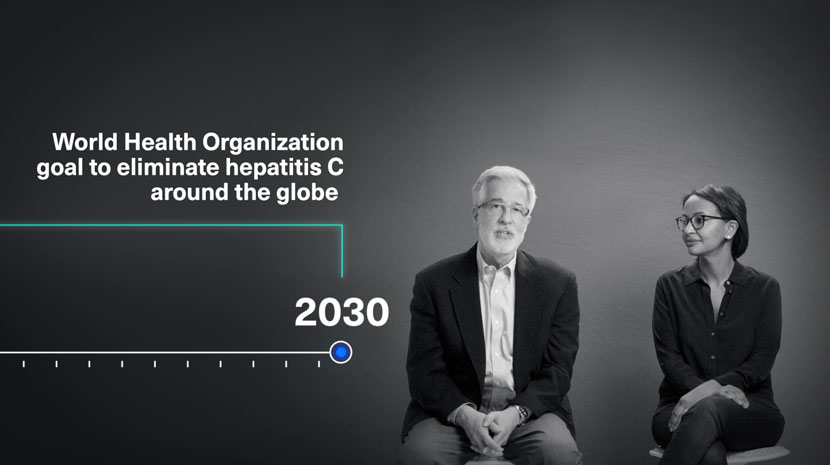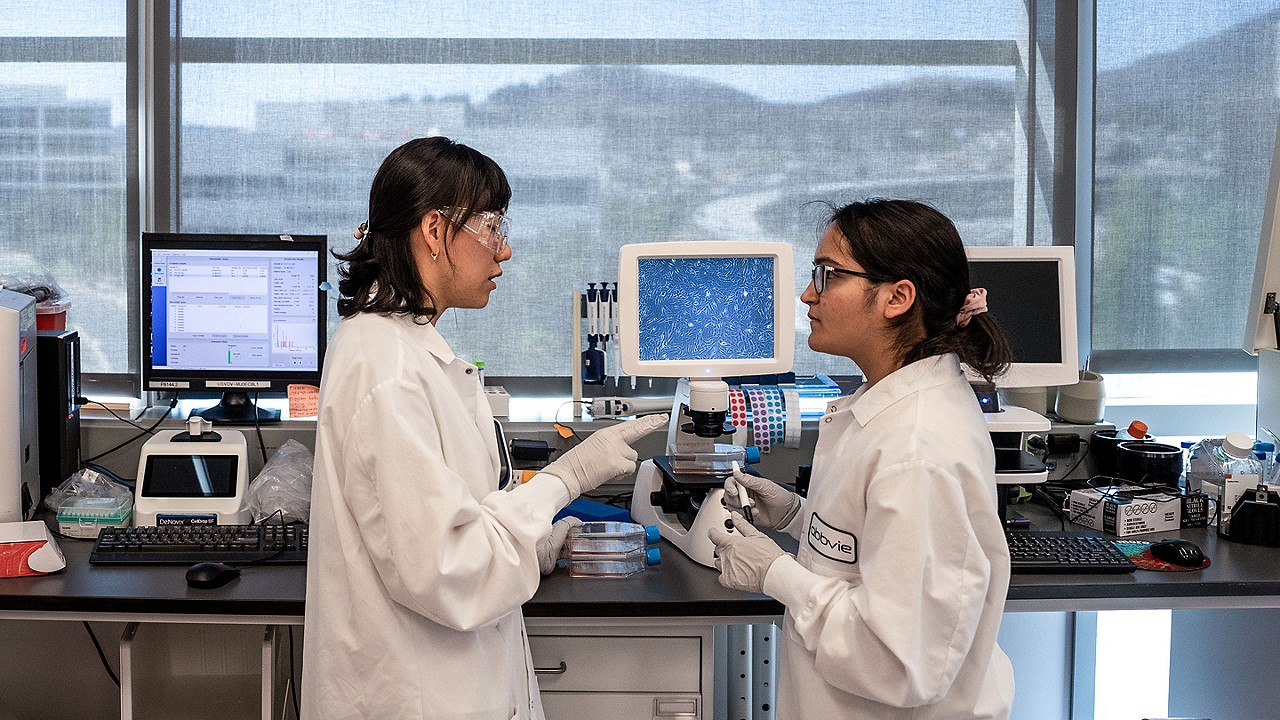Hepatitis C Virus
Other Specialties
Beyond our core therapeutic areas, our researchers study a diverse set of diseases with high unmet needs where we believe great progress for patients is possible.
Unified in a vision for progress
Our teams are advancing the research and development for diseases that share one commonality — we believe that innovation will lead to new discoveries. Areas of interest include Hepatitis C, HIV, COVID-19, pulmonology, endocrinology, gastrointestinal diseases, and therapeutic neurotoxins.
Our scientific talent and experience are as diverse as the diseases we study. Together, we work around the globe to incubate and advance strategies to help bring medicines and solutions to adults and children in need.
Research interests
We're leveraging our global expertise, innovative technologies, and collaborative approach to find answers across a diverse set of research interests. Learn how we are working to improve the quality of life for patients in the following areas:
Infectious diseases
Our infectious disease work includes antibacterial and antiviral programs.
- Our antibacterial program includes both on-market products as well as products that are in development, including work toward a next-generation gram-negative antibacterial for life-threatening infections.
- In antiviral therapies, our work spans hepatitis C (HCV), HIV and COVID-19. With HCV, we are building off our expertise in chronic HCV to find effective therapies for acute HCV so we can help move the world closer toward eliminating this disease.
- In HIV, we are pursuing functional cures that can potentially suppress the HIV virus to low levels so that patients have no need for antiretroviral therapy.
- We are investigating direct-acting antivirals for the treatment of COVID-19.
- Within our pro bono program, more than 400 scientists have given over 170,000 hours of their time toward advancing research and potential medications to treat neglected diseases, including river blindness, Chagas disease and malaria.
Pulmonology
We have research programs investigating idiopathic pulmonary fibrosis (IPF) such as exploring agents to halt and potentially reverse lung fibrosis.
Endocrinology
We focus on conditions linked to hormonal disorders, such as hypothyroidism, hyperparathyroidism, and women's health conditions, such as heavy menstrual bleeding due to uterine fibroids in pre-menopausal women.
Therapeutic neurotoxins
We're investigating ways to expand the application of toxins as a medical therapy to reduce the instance of atrial fibrillation following cardiac surgery, as well as a therapy for overactive bladder and interstitial cystitis and bladder pain syndrome.
Gastrointestinal tract disorders
We are exploring new ways to address diseases of the gastrointestinal tract not related to autoimmune disorders, including pancreatic enzyme replacement therapy and therapies for irritable bowel syndrome with constipation (IBS-C). In each of these, we are also exploring ways to bring therapies to the pediatric population.
Ready to make progress possible?
What unique perspective can you bring to the frontier of medicine? Find your fit on our team of innovators and help make a difference for patients in need.





